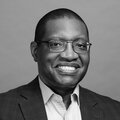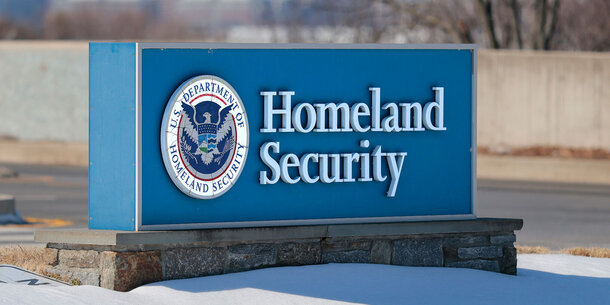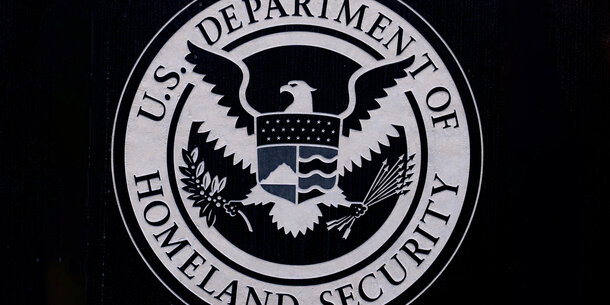Federal agents shoved a United States senator out of a news conference in Los Angeles on Thursday, held him face down on the ground and handcuffed him — all in response to his attempt to ask a question at a public appearance by Homeland Security Secretary Kristi Noem. This is not a normal or lawful use of force. And while it is decidedly out of step with the American tradition of free speech, it is also not an isolated mistake. It is merely the latest abuse of power by the Trump administration, which has made a practice of using government force against political opponents.
The disturbing incident in Los Angeles reflects this administration’s alarming tendency to use federal officers to squelch dissenting voices, including elected officials who are doing their jobs by speaking out publicly. An unabashed government stamping out dissent through force ignores the commitment to unfettered political discourse that defines American law and traditions. Taken to its end, the strategy follows a path worn by regimes defined less by democracy than by authoritarianism.
The videotaped footage from California shows that Sen. Alex Padilla, who represents the state, was trying to ask about the deployment of troops and its impact on his constituents. Specifically, Senator Padilla was attempting to question the Secretary’s asserted justification for deploying the troops. This wasn’t an act of civil disobedience, and there was no threat to Noem. Not only does Senator Padilla represent the state of California, he is the ranking member of the Senate Judiciary Immigration Subcommittee, which exercises oversight over the Department of Homeland Security. He was in the building for a briefing from the military about the deployment in California, and he was fulfilling his role in our constitutional system of checks and balances. Nevertheless, federal agents grabbed Senator Padilla and forced him out of the room, even as he repeatedly identified himself as one of California’s senators. Once outside, the officers forced the Senator to the ground and placed handcuffs on him.
Senator Padilla is the latest in a growing list of public officials who have been strong-armed or arrested by federal officers. In Newark, New Jersey, a member of Congress and the mayor of that city were arrested by ICE officers as they pressed for answers about the conditions of confinement at a local detention facility — as members of Congress have a statutory right to do. And in New York, federal officers raided a congressional office to detain a member’s staffer on charges of harboring rioters. None of the reports credibly suggest that any of these people were engaged in violent or threatening behavior. But every report indicates the deployments of force involved a duly elected official viewed by this administration as opposing its political viewpoint.
The Trump administration is considering going even further. Trump has threatened to arrest Gavin Newsom, the democratically elected governor of California, although he hasn’t been able to articulate the grounds. (Not to be outdone, Speaker Mike Johnson suggested Newsom should be “tarred and feathered.”) Just before federal agents handcuffed Sen. Padilla, Noem claimed that federal officers were in California to “liberate the city from the socialists.” Such statements suggest the deployment of troops is not about maintaining order.
This use of force is not normal politics, especially in the United States. In this country, a foundational principle of the First Amendment is that non-violent expression of political opinions, including vigorous public dissent of a given administration’s policies, is protected. All free societies depend on this kind of open public discourse and debate, free from punishment. Our elected leaders enhance this exchange of ideas and opinions through their official work, which is why the U.S. Constitution also specifically protects members of Congress from arrest during session.
The scene in Los Angeles demonstrates beyond doubt that we have entered a troubling era of using federal power to cut off that debate. Even during some of the most challenging chapters in our history, presidents have refrained from policing fellow officials who oppose their point of view. President Eisenhower federalized the national guard not to arrest Orval Faubus, the ardently segregationist governor of Arkansas, but to enforce a court order and protect the young students who integrated Little Rock schools. President Kennedy did not arrest an even more openly defiant Gov. George Wallace, who physically blocked fellow Alabamians from enrolling in the state university pursuant to a federal court order. George W. Bush refrained from using force against those who loudly protested the Supreme Court decision that delivered him the presidency. And more recently, President Obama completed his State of the Union speech rather than order the forced removal of the member of Congress who loudly interrupted by calling him a liar. Not one of these presidents unleashed federal authority of any kind — let alone force — to harass or to detain people for objecting to their policies.
Using public power to squelch dissent is the practice of the United States’ adversaries: dictatorships, juntas, and rogue states. The mere presence of opposition in these countries is a crime. Using power to silence the officials whose job is to speak out and, when needed, hold government accountable is a step beyond politics; it disregards their authority to represent their constituencies. Moreover, it sends a coldly undemocratic message to the public at large: power demands absolute loyalty, and dissent will be punished. The narratives of regimes like China, Hungary, Myanmar, and Russia vividly reveal the dangers that follow from the unbridled use of power.



